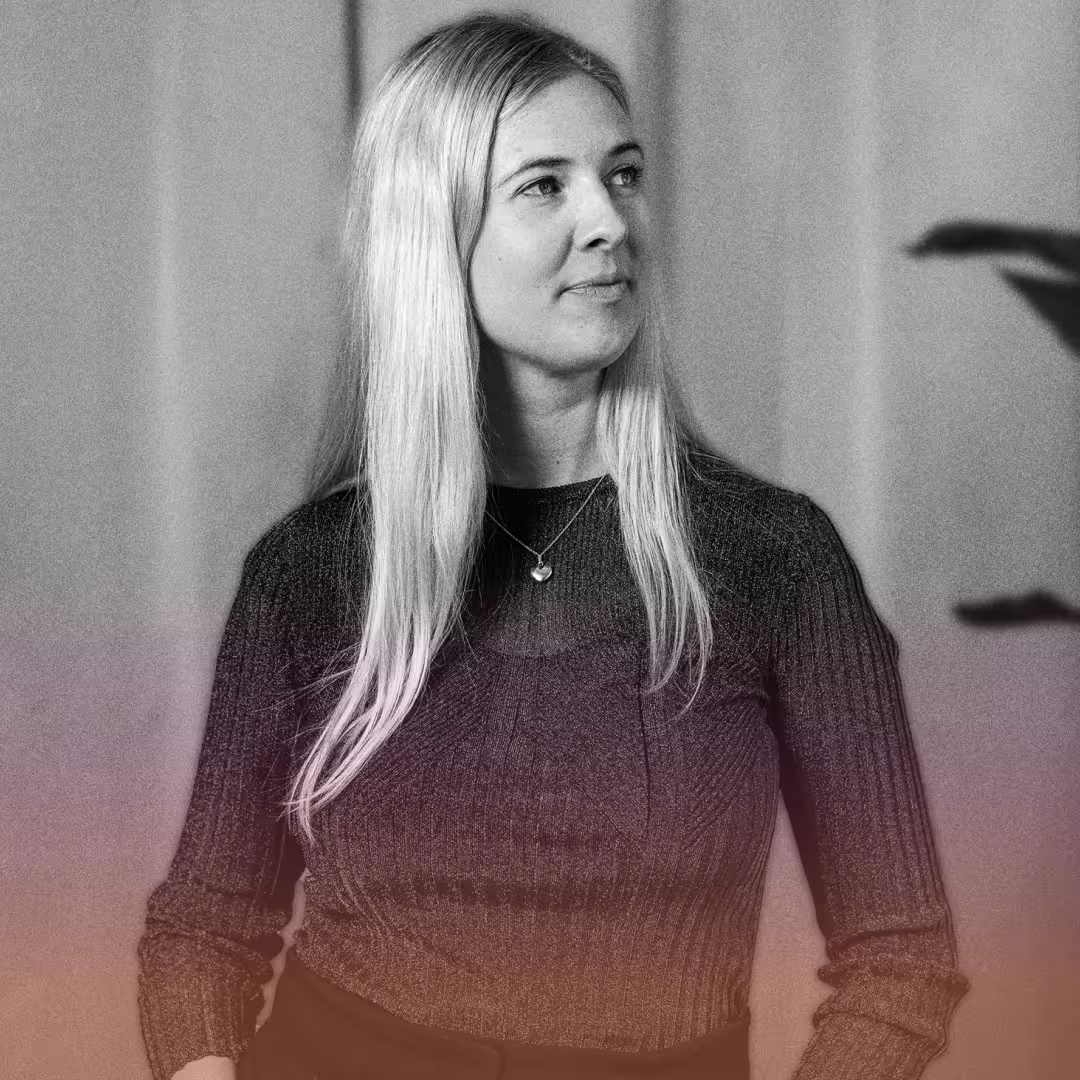2/9/25
How Cancel Culture Silences Women
How Cancel Culture Silences Women
Three years ago, I found myself at an investor dinner held at one of those fancy, expensive restaurants. The kind where the lighting is dim, the cutlery is heavy, and the wine flows like water.
Picture it: a room full of people standing in small circles, wine glasses in hand, nodding politely, networking with intention. These evenings aren’t just social, they’re strategic.
It’s where startup founders meet institutional investors, the ones who write the big checks. The kind who won’t respond to a cold email but will remember your name over a glass of wine.
Getting invited means access. And access, in the world of fundraising, is everything.

But here’s the thing: as a female founder, getting invited isn’t easy. We learned that the hard way, and it took us almost two years before we started receiving invites to these rooms.
That night, we were about 20 people. The usual crowd of white men, who all seem to play sports together, sit on the same boards, and be friends with the same white men.
I spotted one other woman in the room. I slowly gravitated toward her, and as the waiters started carrying out food, I made sure to sit close to her.
We got to talking. She had built a company bigger than most of the founders at the table. She was sharp, strategic, and unapologetically ambitious. Naturally, I admired her.
Later that evening, the conversation turned to gender. Specifically, the gender gap in fundraising, a topic that tends to surface in these circles before quickly being brushed aside.
As you may know, male founders still receive 98% of startup funding.
That means female founders are left to compete for the remaining crumbs: 2%. Not because we’re less talented or less ambitious.
In fact, data shows that startups founded by women deliver twice the revenue per invested dollar compared to those founded by men.
But the numbers don’t move, because 90-something percent of VC partners (the people making the decisions) are men.
As the men at the table speculated about why they didn’t see more women-led startups, one even said it was "hard to find talented female founders."
That’s when the woman beside me leaned in and told him to “get real.” She suggested, firmly but fairly, that he might want to check his own bias.
His fund had invested in zero female-founded companies that year. Their track record of promoting women? Equally bleak.
She was right. She was direct. And she wasn’t likeable.
The mood at the table shifted immediately. Because no one likes a woman who challenges the status quo. It doesn’t matter if she’s right. If she’s vocal, if she pushes back, if she calls out the quiet discrimination that persists - she becomes difficult. Unpleasant. Annoying.
A few weeks later, headlines broke.
The same woman I’d sat next to was being cancelled. Former employees called her “too bossy”. Investors said she was “difficult to work with”. Anonymous sources described her as “self-promoting”.
In other words: she acted like a founder. The only difference was that she was a woman.

The Double Standard Is Real
The double standard is glaring.
When male founders set high expectations, they’re seen as visionary. When a woman does it, she’s toxic. When he’s strategic, he’s praised. When she’s strategic, she’s manipulative.
There is no room for nuance. No space for imperfection.
This isn’t opinion. It’s fact.
Take the famous Heidi/Howard case study from Harvard. Two groups of students read the exact same story about a successful entrepreneur: one version named Heidi, the other Howard. The content was identical. The only difference was the gendered name. Howard was liked. Heidi was respected but disliked, described as selfish and less trustworthy. The story is widely cited for a reason: it reveals the unconscious bias baked into how we perceive leadership.
That case study was done in 2003. More than 20 years later, nothing has changed. If anything, it’s gotten worse.
Because now, we’re not just navigating bias. We’re navigating cancel culture.
A culture that offers no space for imperfection. No space to change your mind. No space to be misunderstood.
A culture that doesn’t just punish bad behaviour, it punishes female behaviour that doesn’t fit the mold.

The Perfect Example? Our Crowdfunding Campaign
Our crowdfunding campaign is the perfect example. We initially launched the campaign because we wanted our community to have real ownership in our journey by allowing them to buy shares.
We didn’t need the money; we already got that from institutional investors and therefore we offered just a small pool of stocks for purchase. We didn’t have much time to put the campaign together, and like every other company raising via crowdfunding, we had to live up to a long list of legal demands. Which we did.
It went amazing.
We broke six world records, including becoming the largest ever crowdfund in history by number of investors.
The previous record was held by Revolut, a male-led fintech that was widely praised in the media for its campaign. Even years later, that crowdfund was still being held up as a best-practice example.
So when we shattered their record and quite literally broke the entire crowdfunding platform from the traffic, we expected this to be seen as a positive story. Especially in a world where female founders receive just 2% of funding and face enormous structural barriers.

But that’s not what happened.
Instead, we were accused of being reckless. Of not knowing what we were doing. Of building hype instead of a business. Every decision we made was dissected under a microscope. The scrutiny was relentless. The standard? Impossible.
We were even attacked for raising money at all, being framed as reckless spenders. Again, keep in mind that men raise 98% of money and are praised for it.
There is no winning. Even when you win, the rules get rewritten - and somehow, you still lose.
It’s Not Just Scary, It’s Silencing
People always talk about how hard it is to be a founder. And we agree. It’s relentless. It’s exhausting. But nothing compares to being a woman trying to build something.
We’ve lived with a constant fear of being cancelled. And at times, it has been paralysing. It’s kept us awake at night with crippling anxiety. It made us second-guess the hard decisions, avoid confrontation, delay necessary changes, because we knew that even doing the right thing could make us enemies.
No amount of therapy or reassurance helps. Because the facts remain the same:
As female founders we are bigger targets. We will be judged harder. And we have to be likeable to be successful.
It’s incredibly draining to think about all this and to constantly walk that line, when at the same time, running a startup takes everything you have. And then some.

We often say we want women to lead. But the moment they do, the moment they make noise, take up space, or simply have flaws, we turn on them.
And I challenge you to name a man who you’ve judged as hard for the same characteristics. Who you’ve bitched about to your friends, without knowing them personally. Who you’ve participated in tearing down online.
Go on. Think about it.
This culture affects all of us. It teaches us to play small. To be nice instead of assertive. To always be one step ahead of the criticism. And it’s robbing us of the boldness we need to build the next generation of leadership.
Emma, Camilla and myself built a global company. We scaled it to 130+ countries. We raised $24 million. We’ve changed the lives of women around the world.
And still, every day, we wonder if we’re next.
And we’re not alone. Every female founder I know feels it. The fear of doing everything right and still being burned at the stake for being the wrong kind of woman. Of course, everything we’re discussing here is significantly worse for women of colour.
Cancel culture is not just scary, it’s silencing.
And when we silence women, we don’t just lose their voices. We lose their ideas, their innovations, their companies, their futures.
We all have a role to play in this. Whether we’re investors, customers, journalists, or just casual observers, we need to question the stories we believe and the standards we uphold. We need to reflect on whom we give grace to, and whom we tear down.
Because if women can only lead when they’re perfect, then no one wins.
And it’s time we change that.

